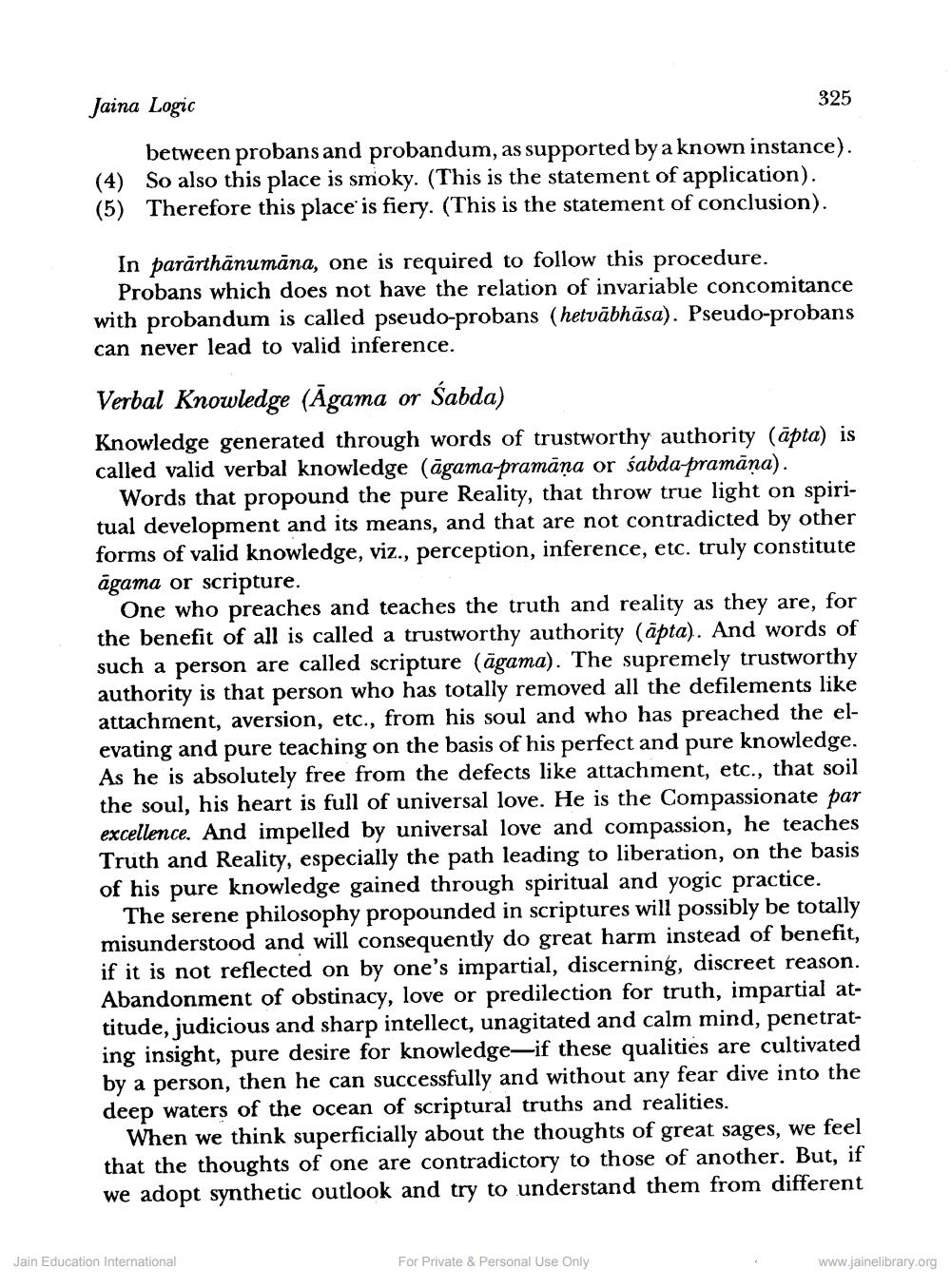________________
Jaina Logic
325
between probans and probandum, as supported by a known instance). (4) So also this place is smoky. (This is the statement of application). (5) Therefore this place is fiery. (This is the statement of conclusion).
In parārthānumāna, one is required to follow this procedure.
Probans which does not have the relation of invariable concomitance with probandum is called pseudo-probans (hetvābhāsa). Pseudo-probans can never lead to valid inference.
Verbal Knowledge (Āgama or Sabda) Knowledge generated through words of trustworthy authority (äpta) is called valid verbal knowledge (āgama-pramāna or sabda-pramāna).
Words that propound the pure Reality, that throw true light on spiritual development and its means, and that are not contradicted by other forms of valid knowledge, viz., perception, inference, etc. truly constitute agama or scripture.
One who preaches and teaches the truth and reality as they are, for the benefit of all is called a trustworthy authority (apta). And words of such a person are called scripture (agama). The supremely trustworthy authority is that person who has totally removed all the defilements like attachment, aversion, etc., from his soul and who has preached the elevating and pure teaching on the basis of his perfect and pure knowledge. As he is absolutely free from the defects like attachment, etc., that soil the soul, his heart is full of universal love. He is the Compassionate par excellence. And impelled by universal love and compassion, he teaches Truth and Reality, especially the path leading to liberation, on the basis of his pure knowledge gained through spiritual and yogic practice.
The serene philosophy propounded in scriptures will possibly be totally misunderstood and will consequently do great harm instead of benefit, if it is not reflected on by one's impartial, discerning, discreet reason. Abandonment of obstinacy, love or predilection for truth, impartial attitude, judicious and sharp intellect, unagitated and calm mind, penetrating insight, pure desire for knowledge—if these qualities are cultivated by a person, then he can successfully and without any fear dive into the deep waters of the ocean of scriptural truths and realities. When we think superficially about the thoughts of great sages, we feel
e thoughts of one are contradictory to those of another. But, if we adopt synthetic outlook and try to understand them from different
Jain Education International
For Private & Personal Use Only
www.jainelibrary.org




